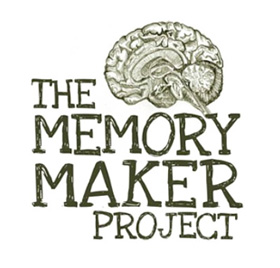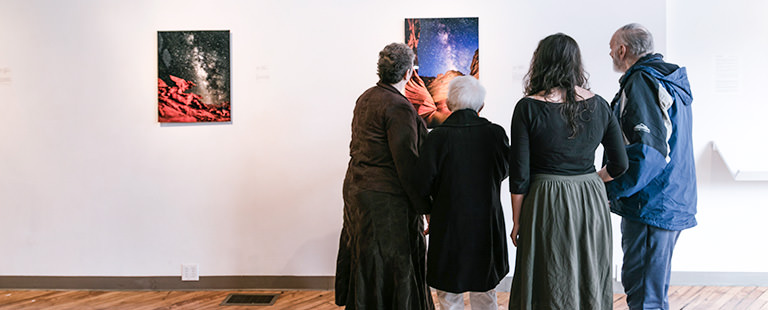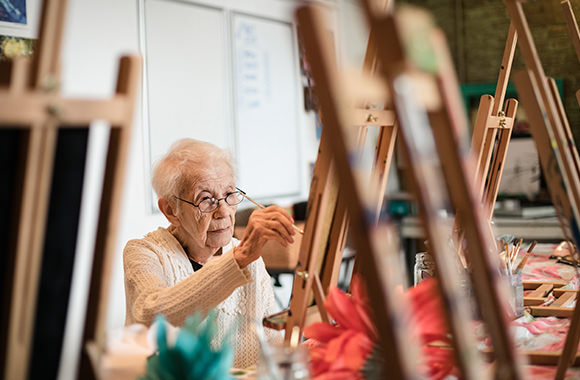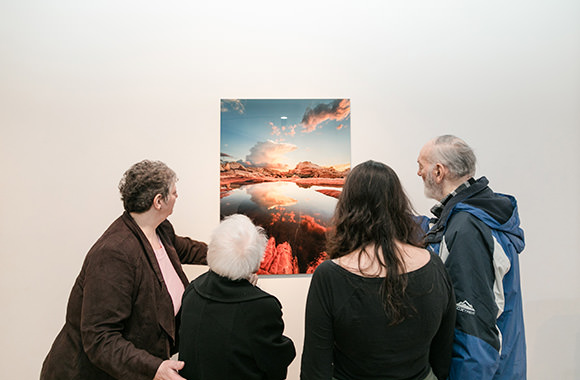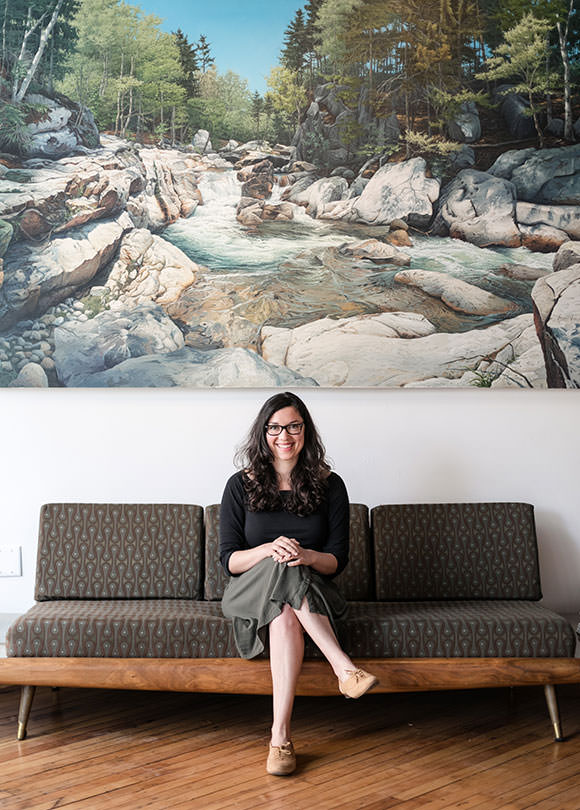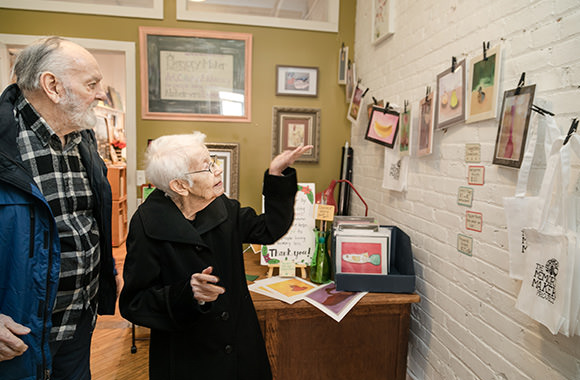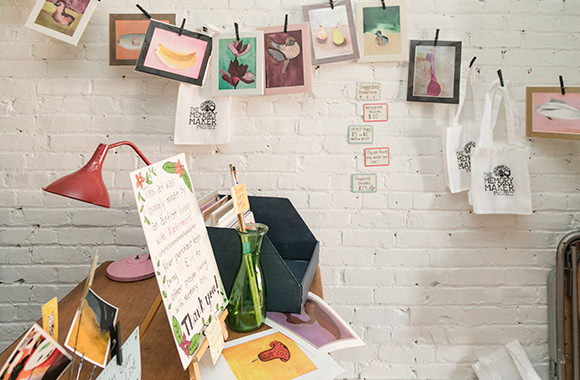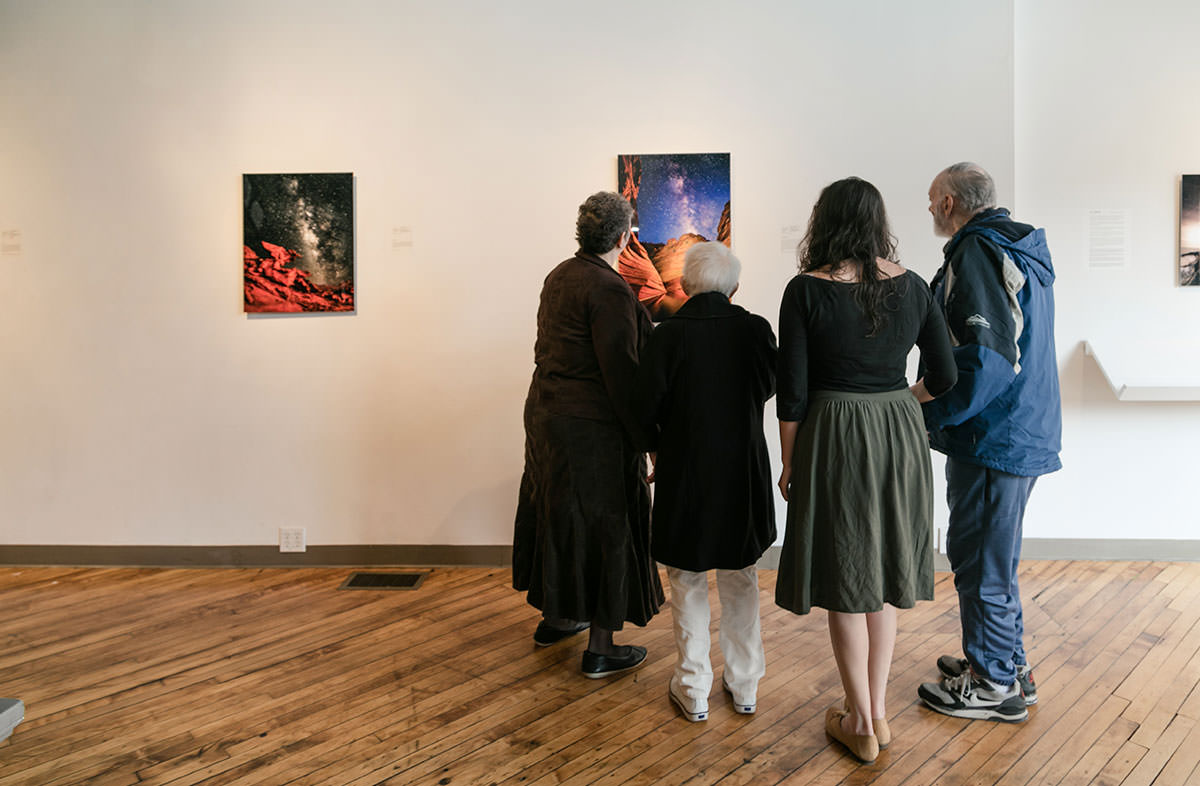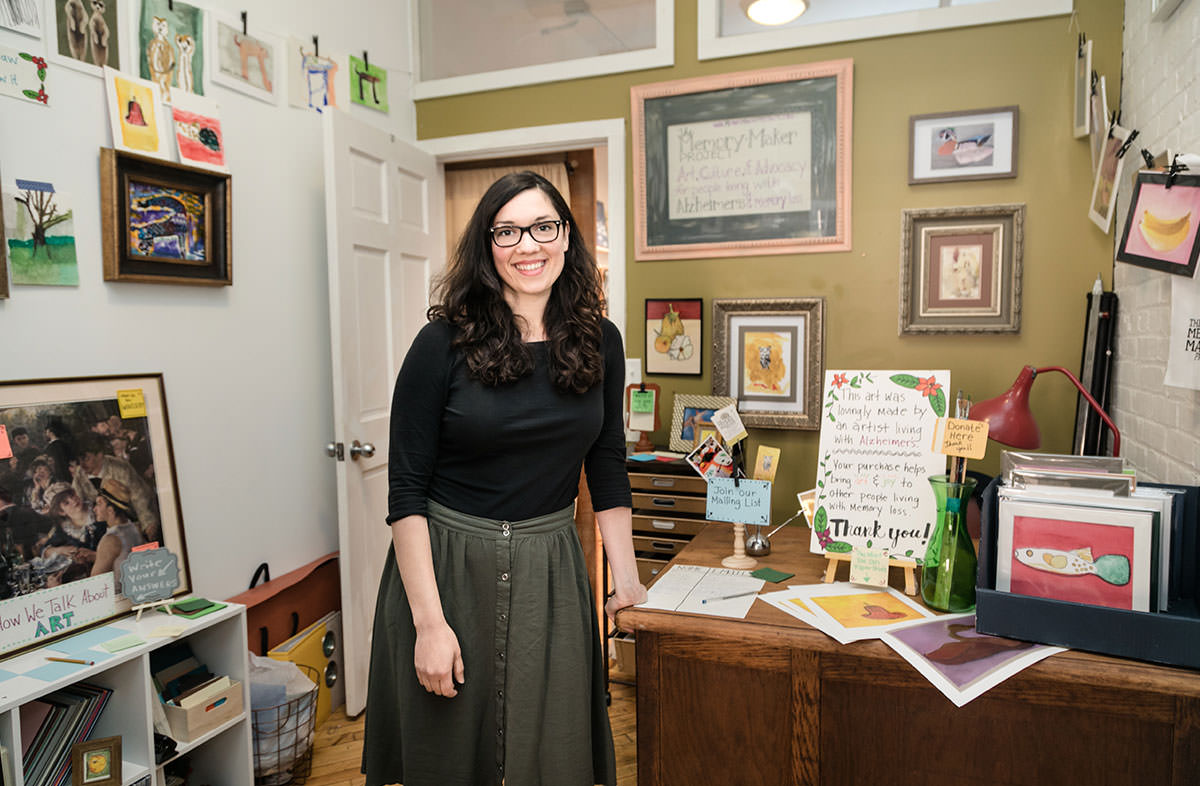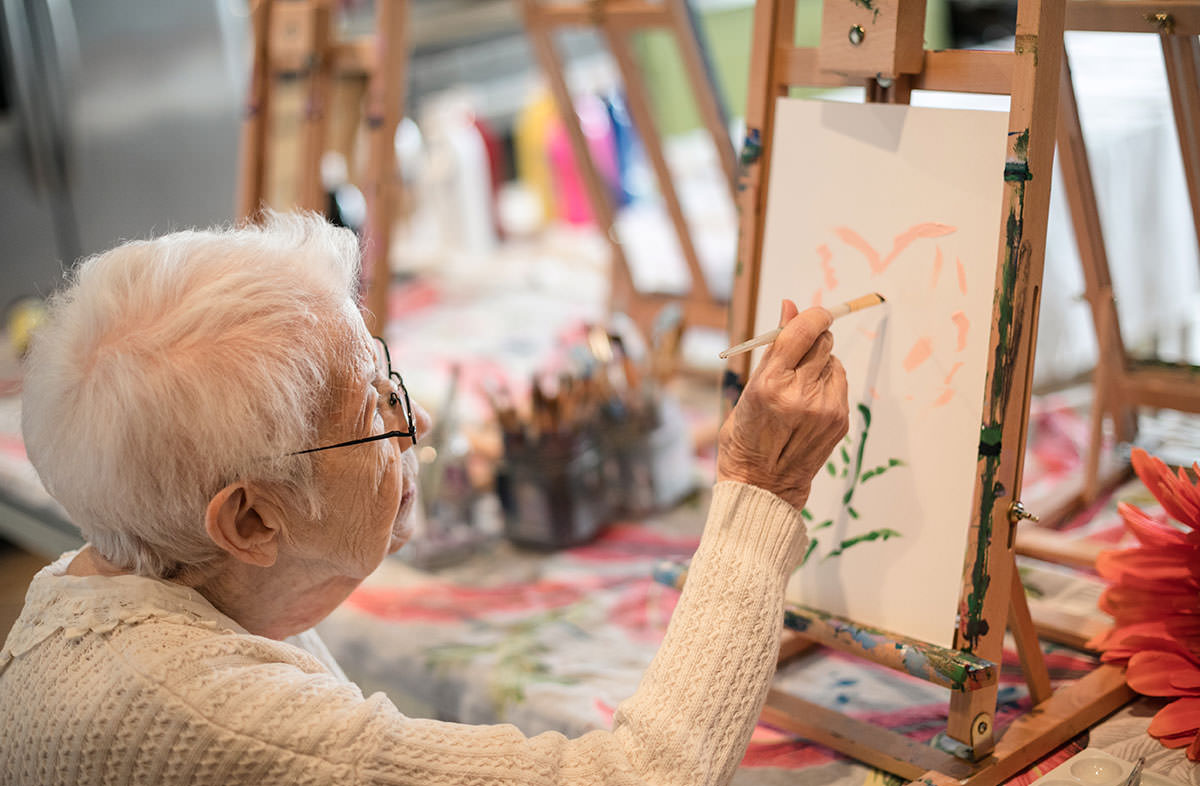When dedicating yourself to a solution, you often wind up discovering a new problem to solve.
Memory Maker Project is an arts, culture, and advocacy program for people with memory loss throughout the Southern Tier. Co-founded and directed by Christina Muscatello, the organization draws heavily on her experience as an arts educator and stems from her childhood on a street of retirees.
A social kid, Christina spent her time hopping from porch to porch, swapping stories with her retired neighbors. She grew up in Binghamton in a multigenerational family that took advantage of every arts and culture opportunity within easy driving range of Binghamton.
We would write poetry, dance around the kitchen, paint, play scrabble, and go to plays.
During her undergrad years, Christina worked as a 1-on-1 aide for a family friend with Alzheimer’s, her first experience with memory loss. “I found that if I did a lot of artsy and cultural things that I grew up doing anyway, her symptoms would decrease a little bit. She wasn’t as anxious or depressed. We would write poetry, dance around the kitchen, paint, play scrabble, and go to plays.” This experience led to her masters work in integrated teaching through the arts, then eventually a job at the I’m Still Here Foundation in Boston, a leading researcher and practitioner of non-pharmaceutical and art-based intervention for people with dementia. The work was her calling, but the Binghamton community that raised her was aging. Her grandfather was starting to get dementia.
She moved back home and quickly met her co-founder Kim Evanoski, a dementia-certified social worker, who gave Christina the strength and practical tools to get Memory Maker Project off the ground.
